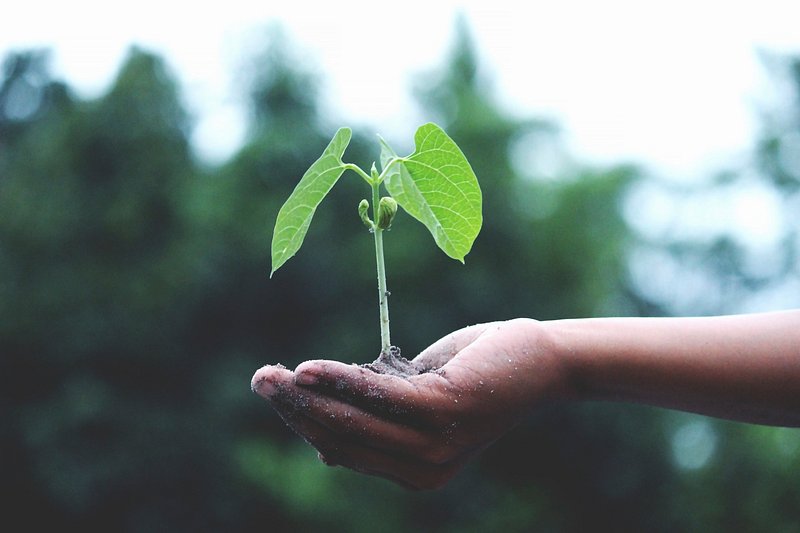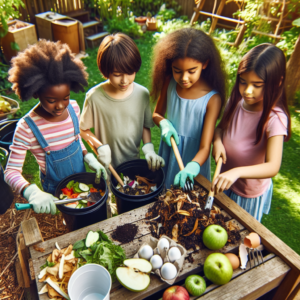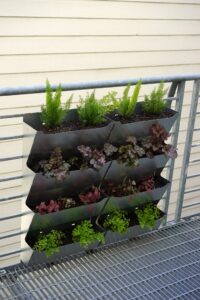Contents
- 1 Unlocking the Psychological Oasis: Therapeutic Gardening Benefits
- 2 Cultivating Calm: Reducing Stress with Soil and Seeds
- 3 Sowing Seeds of Happiness: Boosting Mood Through Plant Care
- 4 From Ground to Growth: How Gardening Bolsters Self-Esteem
- 5 Harvesting Mindfulness: The Meditative Qualities of Garden Work
- 6 Planting the Roots of Healing: Gardening’s Effects on Overcoming Trauma
- 7 FAQ: Cultivating Answers for Your Gardening Queries
- 8
- 9 Author

Unlocking the Psychological Oasis: Therapeutic Gardening Benefits
Imagine a space where stress dissolves like morning dew and your mood blooms as vibrantly as a well-tended rose. This isn’t a far-off paradise; it’s the magic of therapeutic gardening, an oasis for the mind that you can create right in your backyard or even on a sunny windowsill. The benefits of gardening go beyond the aesthetic pleasure of a lush haven; it’s a powerful tool for enhancing mental well-being.
Article-at-a-Glance: Key Takeaways
-
Gardening can significantly reduce stress, creating a sense of tranquility and peace.
-
Engaging with plants and soil can elevate your mood and combat feelings of sadness or depression.
-
Caring for a garden can boost self-esteem by providing a tangible sense of accomplishment.
-
The meditative act of gardening encourages mindfulness, keeping you grounded in the present moment.
-
Gardening can aid in healing from trauma, offering a nurturing environment to foster resilience.
Cultivating Calm: Reducing Stress with Soil and Seeds

Life can be hectic, but your garden is a sanctuary where the buzz of the world fades away. The simple acts of digging, planting, and watering are not just chores; they’re steps toward serenity. As your hands work the soil, your mind unwinds, and the weight of stress lifts from your shoulders. This is the power of therapeutic gardening – transforming tension into tranquility one seed at a time.
Understanding the Stress-Garden Connection
Why does gardening soothe the weary soul? It’s a blend of fresh air, gentle exercise, and the nurturing of life. When you’re in the garden, your senses are engaged – the scent of fresh earth, the sound of birds, the feel of a breeze. These sensory experiences bring you back to the present, away from the clutter of worries and to-do lists. Plus, the physical activity releases endorphins, the body’s natural stress-relievers.
Hands-on Techniques for Stress Relief
Let’s get practical – how exactly do you turn your garden into a stress-busting retreat? Here are some hands-on techniques:
-
Start with deep breathing: Before you begin, take a moment to breathe deeply, inhaling the scents of your garden and setting a calm intention for your gardening session.
-
Engage in repetitive tasks: Activities like weeding or raking are repetitive and can be incredibly meditative, helping to clear your mind.
-
Create a rhythm: Find a gardening rhythm that works for you, whether it’s the methodical spacing of seeds or the steady pace of pruning.
-
Use gardening as a break: Step away from screens and the rush of life by scheduling regular gardening breaks. Even a few minutes can make a difference.
-
Focus on the process, not perfection: Let go of the desire for a flawless garden and embrace the beauty of the process. Every plant and every moment in the garden is an opportunity for growth – for your plants and for you.
By incorporating these techniques into your gardening routine, you’ll not only cultivate a beautiful space but also nurture a peaceful state of mind.
Sowing Seeds of Happiness: Boosting Mood Through Plant Care

“Plant Growing Images | Free Photos, PNG …” from www.rawpixel.com
Gardening is more than just a hobby; it’s a heartwarming journey. Each seed you plant is a promise of joy, and every new sprout is a triumph. The act of caring for plants is inherently optimistic, as it requires a belief in the potential of tomorrow. As your garden flourishes, so too does your inner joy, proving that happiness can indeed be homegrown.
Plant Choices That Lift Spirits
Choosing the right plants is like picking your personal cheerleaders. Some plants have a knack for brightening your day with their vibrant colors and fragrances. Consider adding these mood-boosting plants to your garden:
-
Sunflowers: Their towering presence and bright faces are a natural pick-me-up.
-
Lavender: Known for its calming scent, lavender can help soothe a restless mind.
-
Cherry Tomatoes: Popping a sweet, sun-warmed cherry tomato in your mouth is a small, joyful reward for your gardening efforts.
-
Geraniums: Their bold blooms and uplifting fragrance can brighten any garden space.
-
Mint: A quick rub of its leaves releases a refreshing aroma that can invigorate the senses.
By surrounding yourself with these plants, you’re setting the stage for a happier, more vibrant garden experience.
Creating an Emotionally Uplifting Garden Space
Your garden should be a tapestry of textures, colors, and scents that delight the senses and elevate your mood. Here’s how to create a space that’s a feast for the soul:
-
Design with color in mind: Use a palette of colors that make you feel joyful and alive. Bright yellows, passionate reds, and calming blues can transform the energy of your space.
-
Include a water feature: The sound of trickling water is soothing and can add a serene soundtrack to your garden sanctuary.
-
Create cozy nooks: Set up a bench or hammock where you can sit and immerse yourself in the beauty of your garden, a perfect spot for reflection and relaxation.
-
Plant for the senses: Incorporate plants with different textures and fragrances to engage and enchant your senses each time you step into your garden.
With these elements in place, your garden becomes an emotionally uplifting retreat that you’ll be drawn to whenever you need a boost.
From Ground to Growth: How Gardening Bolsters Self-Esteem

There’s something incredibly empowering about bringing life to a patch of earth. Gardening is a journey of growth, not just for your plants, but for your self-esteem as well. Each task completed and each obstacle overcome in the garden is a testament to your capabilities and a builder of confidence.
Gardening Tasks That Foster Confidence
Some gardening tasks are particularly effective at nurturing your sense of accomplishment. Here are a few to focus on:
-
Harvesting: There’s a profound sense of achievement in picking the fruits (or vegetables) of your labor.
-
Transplanting: Successfully moving a plant from one spot to another shows your ability to nurture and adapt.
-
Pruning: Making the right cuts to help a plant thrive demonstrates your knowledge and decision-making skills.
-
Composting: Turning waste into nutrient-rich soil is a rewarding way to contribute to your garden’s health and the environment.
As you engage in these tasks, celebrate each success, no matter how small. Your garden is a living portfolio of your dedication and growth.
Celebrating Small Victories Amidst Nature
Every tiny sprout that emerges is a victory. In the garden, each moment offers a chance to celebrate the small wins that add up to significant achievements. Whether it’s the first bloom of the season or the successful battle against pests, these triumphs are milestones on the path of the gardener’s journey. Acknowledging these moments not only boosts self-esteem but also encourages a deeper connection with the natural world.
Harvesting Mindfulness: The Meditative Qualities of Garden Work

Gardening is an invitation to slow down and savor the moment. The methodical nature of garden work, from weeding to watering, is inherently meditative. It’s an activity that encourages you to be fully present, engaging with the task at hand and letting go of distractions. As you immerse yourself in the rhythm of garden chores, you’ll find that your mind becomes clearer, and a sense of calm envelops you.
Integrating Mindfulness into Gardening Practices
Mindfulness is the art of being present, and the garden is the perfect canvas to practice this art. Start by focusing on your breath as you dig into the earth. Feel the texture of the soil, notice the colors of the leaves, and listen to the sounds around you. When thoughts arise, acknowledge them and then gently guide your attention back to the task at hand. This practice turns each gardening activity into a mindful ritual.
Plants as Living Anchors for Present-Moment Awareness
Plants are more than just decorative; they are living beings that can anchor us in the now. When you’re feeling scattered, simply touching a leaf or observing the intricate patterns of a flower can bring you back to the present. Plants serve as gentle reminders to appreciate the beauty of the moment, grounding us in the here and now with their silent wisdom.
Planting the Roots of Healing: Gardening’s Effects on Overcoming Trauma

For those who have experienced trauma, the garden can be a place of refuge and recovery. The predictable cycles of nature provide a comforting routine, while the act of nurturing plants can be incredibly therapeutic. Gardening offers a sense of control and a way to rebuild trust in the environment, which can be crucial for individuals working through traumatic experiences.
A Safe Haven for Processing Emotions
The garden is a sanctuary where you can let your guard down and process your feelings in peace. It’s a place where you can be alone with your thoughts, away from the pressures of daily life. As you nurture your plants, you may find that you’re also nurturing your inner self, allowing emotions to surface and be acknowledged. The repetitive nature of gardening tasks can be soothing, offering a gentle space for reflection and healing.
Nurturing Resilience: From Seedlings to Personal Growth
Resilience is like a muscle, and gardening is one of the ways to strengthen it. Every time a seedling pushes through the soil, it’s a reminder of the power of persistence. When a storm damages your garden, the recovery process can teach you about bouncing back and adapting to change. As your garden grows, you’ll find that your capacity for resilience grows too, with each challenge presenting an opportunity to learn and become stronger.
FAQ: Cultivating Answers for Your Gardening Queries

Got questions about therapeutic gardening? You’re not alone. Here are some of the most common queries I hear from gardeners, along with my insights to help you get the most out of your green space.
How can starting a garden improve my mental health during stressful times?
Starting a garden can be a game-changer for your mental health, especially when stress levels are high. It gives you a sense of control in an uncertain world and provides a physical outlet for your worries. The simple act of caring for something outside yourself can be incredibly grounding and can offer a respite from the chaos of life. Plus, the success of seeing your plants grow can be a real confidence booster.
What are some simple gardening practices to enhance my mood?
Looking to lift your spirits with a bit of dirt under your nails? Here are a few easy gardening practices that can help brighten your day:
-
Plant something new: The excitement of growing a new plant can spark joy and curiosity.
-
Arrange a colorful display: Grouping plants with bright flowers or foliage can create a cheerful view.
-
Grow aromatic herbs: Scents like basil, rosemary, and mint can refresh your senses and elevate your mood.
-
Set up a bird feeder: Attracting wildlife to your garden can provide a delightful distraction and a sense of connection to nature.
-
Keep a garden journal: Documenting your gardening journey can help you reflect on positive experiences and progress.
By incorporating these practices into your gardening, you’ll not only cultivate a lovely space but also foster a more joyful mindset.
Are there specific plants known to have a more positive effect on mental well-being?
Yes, certain plants have been recognized for their mood-boosting properties. For example, the bright and cheerful colors of marigolds and pansies can stimulate joy, while the soothing green of ferns and the soft textures of lamb’s ear can have a calming effect. Additionally, herbs like chamomile and lemon balm are known for their relaxing aromas. These plants are not just a feast for the eyes; they engage our senses in a way that can uplift our spirits.
Can gardening be considered a form of mindfulness or meditation?
Without a doubt, gardening is a meditative practice. It’s a chance to engage fully with the present moment. As you focus on the sensations of the earth between your fingers, the sounds of nature around you, and the sight of new growth, you’re practicing mindfulness. This focused attention and the repetitive nature of garden tasks can create a meditative state, reducing stress and promoting a peaceful mind.
How can I involve my family in gardening to increase our collective well-being?
Inviting your family to join you in the garden can turn individual relaxation into a shared experience. Start by assigning tasks that play to each person’s strengths or interests, whether that’s planting, decorating, or harvesting. You can also create a special project, like a pizza garden with all the herbs and vegetables for a homemade pizza, to spark excitement. Gardening together not only cultivates your garden but also nurtures family bonds and creates lasting memories.
In conclusion, the benefits of therapeutic gardening are as abundant as the harvests it yields. From reducing stress and boosting mood to enhancing self-esteem and fostering mindfulness, the act of nurturing plants nurtures us in return. It’s a holistic approach to well-being that can be as simple as a windowsill herb garden or as grand as a backyard vegetable plot. So, grab a trowel, plant a seed, and watch as both your garden and your mental health flourish. As you tend to your plants, remember that with each leaf, petal, and root, you’re not just growing a garden; you’re cultivating a healthier, happier you.



